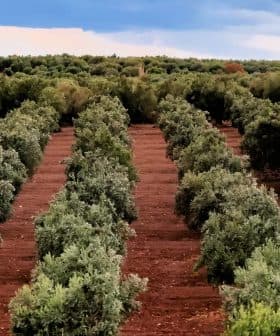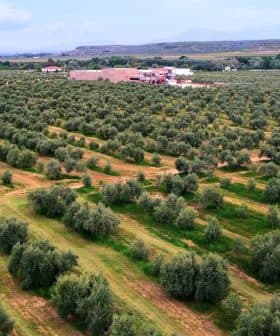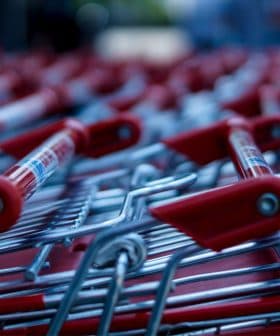Pompeian First for USDA Quality Monitoring Program for Olive Oil
The USDA has expanded its Quality Monitoring Program to include olive oil products, with Pompeian, Inc. being the first company to participate in the program which involves a detailed quality control questionnaire, in-plant audits, and product sampling. The monitoring program involves a two-phase process, with monthly monitoring and unannounced visits to ensure companies are following established quality control practices and meeting the Standards for Grades of Olive Oil and Olive-Pomace Oil.
The United States Department of Agriculture (USDA) announced Tuesday that it had expanded its fee-based Quality Monitoring Program to include olive oil products.
The service, which was started in 2008, currently monitors 90 commodities for producers and suppliers of fresh and frozen fruits and vegetables.
Pompeian, Inc., the privately-held olive oil importer based in Maryland, is the first company to participate in the program.
Randy Macon, acting director of the USDA’s Processed Products Division, described the monitoring program as a rigorous audit of good practices based on particular industry needs.
The two-phase process begins with a detailed quality control questionnaire, an in-plant audit and product sampling to pre-screen the company’s established quality control practices.
During the initial assessment, two lots are sampled and graded using a battery of chemical tests and flavor panel analysis. Both lots must successfully pass the initial assessment in order for the company to officially move into the program and sign a monitoring contract.

In the second phase, Macon said, monthly monitoring, including unannounced visits, verifies with an audit checklist that the company is “following through with their procedures and performing those functions.”
Samples are collected to undergo chemical and sensory analyses at the USDA Blakely Laboratory to verify they meet the recently revised Standards for Grades of Olive Oil and Olive-Pomace Oil.
Pompeian’s two major shareholders are a Moroccan company, Aïcha, and Spain’s Moreno S.A. (a company half-owned by olive oil giant Hojiblanca).
Pompeian CEO David Bensadoun said his company at first approached the USDA to certify its products as U.S. Extra Virgin under the new standard’s grading program. “The USDA came back and said there are two ways we can do this,” Bensadoun told Olive Oil Times.
Certification under the grading program was “really expensive,” according to Bensadoun, who suspected the high cost was one reason no companies have yet been certified and, he added when Pompeian inquired, the USDA “didn’t seem quite ready for the “practical aspects” of that program.
Chere L. Shorter, the director of the USDA’s fruit and vegetable program and the chief author of the USDA Grade Standards for Olive Oil, said the U.S grading program would have, in fact, “pulled a lot more samples” in order to achieve a “95 percent confidence for each lot,” — a far more comprehensive analysis than the spot-checks under the monitoring service.
Neither Bensadoun nor representatives at the USDA wanted to disclose the cost of Pompeian’s monitoring program, however, the initial plant visit and on-site assessment, which the USDA said takes up to 5 days at a reported hourly rate of $85, and the recurring lab costs would likely put the program out of reach for many smaller producers.
The USDA typically signs one-year agreements with participants that contain back-out clauses should the producer find the service doesn’t meet its needs, Macon said.
When asked about the initiative by California producers to draft a federal marketing order Macon said he was aware of it, but called it a “totally separate action” handled by another USDA office.
For his part, Bensadoun said participating in the quality monitoring service was his company’s way of “standing behind the USDA voluntary standard” which he hopes will become mandatory.
“The USDA adapted the prevailing international standard to be more acceptable to California,” Bensadoun said, “so why not work with what we have?”
“We want to reach out to our California friends who have done a tremendous job promoting quality,” said Bensadoun, who added that Pompeian has been acquiring groves and land in California to produce olive oil there too.
“Let’s work together,” Bensadoun said, “to avoid confusion, for the good of consumers, producers and retailers.”





